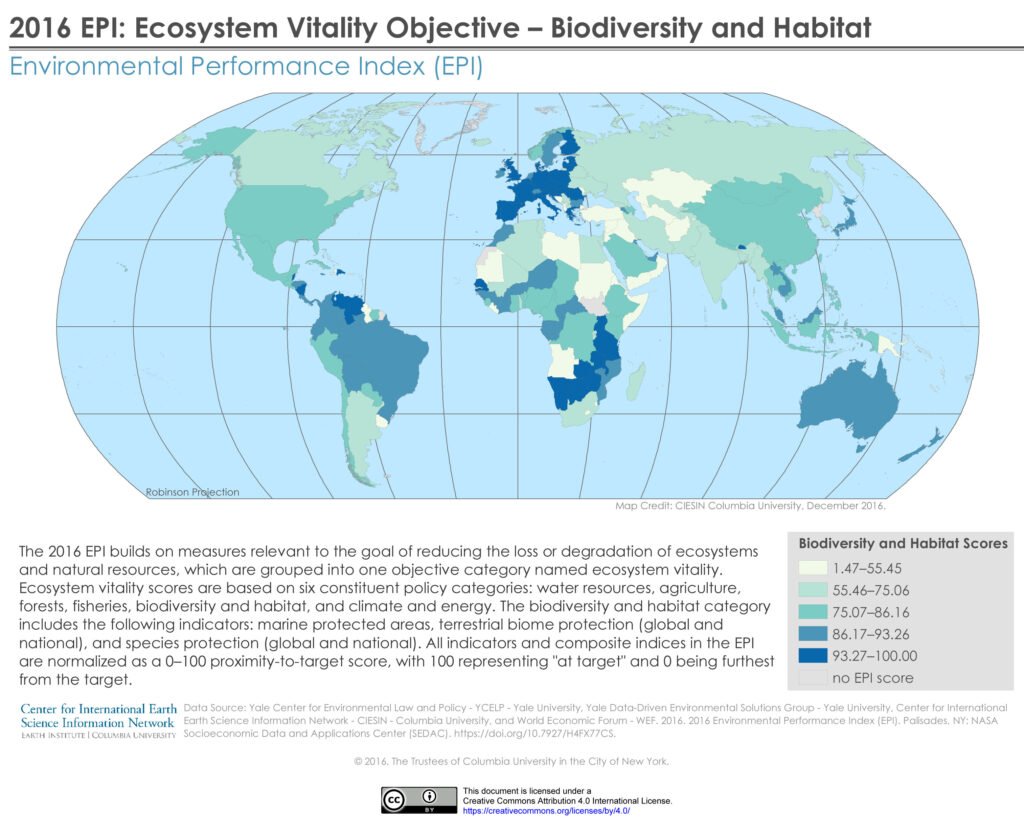In a world where the boundaries between work and personal life are becoming increasingly blurred, the concept of remote work has gained significant traction. As organizations embrace this flexible arrangement, it is crucial to recognize the importance of transparency in remote work policies. Transparency acts as the guiding light that illuminates the path towards a harmonious and productive remote work environment. By fostering open communication, setting clear expectations, and promoting accountability, transparency becomes the cornerstone of success for both employees and employers alike. In this article, we delve into the significance of transparency in remote work policies and explore how it can revolutionize the way we work, collaborate, and thrive in the digital age.
Table of Contents
- The Power of Open Communication in Remote Work Policies
- Building Trust and Accountability through Transparent Guidelines
- Promoting Fairness and Equality in Remote Work Policies
- Creating a Culture of Transparency: Key Strategies for Remote Teams
- Navigating Challenges: Practical Tips for Implementing Transparent Remote Work Policies
- Q&A
- Closing Remarks

The Power of Open Communication in Remote Work Policies
Effective communication is the cornerstone of any successful remote work policy. In a virtual work environment, where team members are physically separated, open communication becomes even more crucial. It fosters collaboration, builds trust, and ensures that everyone is on the same page.
One of the key benefits of open communication in remote work policies is the ability to share ideas and feedback freely. When team members feel comfortable expressing their thoughts and opinions, it leads to innovation and problem-solving. Encouraging open dialogue through virtual meetings, chat platforms, and email threads allows for a diverse range of perspectives to be heard and considered.
Furthermore, open communication helps to establish clear expectations and goals. By openly discussing project timelines, deliverables, and individual responsibilities, remote teams can align their efforts and work towards a common objective. This transparency not only enhances productivity but also promotes accountability among team members.
- Improved collaboration: Open communication enables seamless collaboration among remote team members, fostering a sense of unity and shared purpose.
- Building trust: When team members communicate openly, it builds trust and strengthens relationships, even in a virtual setting.
- Enhanced problem-solving: Open dialogue encourages the sharing of ideas and feedback, leading to innovative solutions and effective problem-solving.
In conclusion, open communication is a powerful tool in remote work policies. It facilitates collaboration, builds trust, and promotes a positive work culture. By embracing open communication channels and encouraging team members to express themselves freely, organizations can unlock the full potential of their remote workforce.

Building Trust and Accountability through Transparent Guidelines
Creating a strong foundation of trust and accountability is crucial for any successful organization. At [Company Name], we believe in fostering an environment of transparency, where guidelines are openly communicated and understood by all. By providing clear and accessible guidelines, we ensure that everyone is on the same page, working towards a common goal.
Our transparent guidelines serve as a roadmap, guiding our employees and stakeholders in making informed decisions and taking responsible actions. These guidelines are not set in stone; rather, they are dynamic and adaptable to the ever-changing needs of our organization and the communities we serve. We encourage open dialogue and feedback, allowing for continuous improvement and growth.
Through transparency, we build trust among our team members, clients, and partners. It enables us to establish a culture of honesty, where everyone feels comfortable expressing their ideas, concerns, and suggestions. By openly sharing our guidelines, we promote a sense of accountability, as each individual understands their role and responsibilities within the organization.
Our commitment to transparency extends beyond internal guidelines. We strive to be transparent in our interactions with our clients and stakeholders, ensuring that they are well-informed about our processes, policies, and decision-making. This transparency fosters stronger relationships, as it allows for open communication and mutual understanding.
At [Company Name], we firmly believe that is the key to our success. It empowers our team, strengthens our relationships, and ultimately helps us achieve our goals in a responsible and ethical manner.

Promoting Fairness and Equality in Remote Work Policies
Creating a remote work policy that promotes fairness and equality is crucial in today’s evolving work landscape. By implementing inclusive practices, organizations can ensure that all employees have equal opportunities and access to resources, regardless of their location or circumstances.
One way to promote fairness is by establishing clear guidelines and expectations for remote work. This can include setting specific working hours, defining communication channels, and outlining performance evaluation criteria. By providing a structured framework, employees can feel confident that their work is being evaluated fairly and consistently.
Additionally, organizations should prioritize providing equal access to resources and tools for remote employees. This can be achieved by offering technology support, providing necessary equipment, and ensuring that all employees have access to training and development opportunities. By leveling the playing field, organizations can empower remote workers to thrive and contribute to the company’s success.
- Establish clear guidelines and expectations for remote work
- Provide equal access to resources and tools
- Offer technology support and necessary equipment
- Ensure all employees have access to training and development opportunities
By , organizations can foster an inclusive work environment where all employees feel valued and supported. This not only enhances employee satisfaction and productivity but also contributes to the overall success of the organization.
Creating a Culture of Transparency: Key Strategies for Remote Teams
Building a culture of transparency is crucial for remote teams to foster trust, collaboration, and productivity. Here are some key strategies to cultivate transparency within your remote team:
- Open Communication Channels: Establish clear and accessible communication channels for team members to share ideas, concerns, and updates. Utilize tools like Slack, Microsoft Teams, or Zoom to facilitate real-time conversations and encourage open dialogue.
- Regular Check-ins: Schedule regular check-ins with team members to discuss progress, challenges, and goals. These meetings can be conducted through video calls or written updates, ensuring everyone is on the same page and aware of each other’s tasks and responsibilities.
- Transparent Decision-Making: Involve team members in the decision-making process whenever possible. Share information about the rationale behind decisions, seek input, and encourage diverse perspectives. This fosters a sense of ownership and inclusion within the team.
- Document and Share Information: Create a centralized repository or knowledge base where important information, documents, and resources can be easily accessed by all team members. This ensures transparency in sharing information and avoids knowledge silos.
- Encourage Feedback: Foster a culture of feedback by encouraging team members to provide constructive criticism, suggestions, and ideas. Regularly seek feedback on processes, workflows, and team dynamics to continuously improve and address any concerns.
By implementing these strategies, remote teams can create a culture of transparency that promotes trust, collaboration, and ultimately leads to greater success.
Navigating Challenges: Practical Tips for Implementing Transparent Remote Work Policies
Implementing transparent remote work policies can be a daunting task, especially when faced with various challenges. However, with the right strategies and practical tips, organizations can successfully navigate these obstacles and create a productive and inclusive remote work environment. Here are some key tips to consider:
- Establish clear communication channels: Effective communication is crucial for remote teams. Encourage the use of collaboration tools such as Slack or Microsoft Teams to facilitate real-time communication and ensure everyone stays connected. Regularly scheduled video conferences can also help foster a sense of community and maintain transparency.
- Set clear expectations: Clearly define work expectations, deadlines, and deliverables to ensure everyone is on the same page. This includes establishing guidelines for availability, response times, and preferred communication methods. By setting clear expectations, remote employees can better manage their time and work efficiently.
- Promote accountability: Remote work requires a high level of self-discipline and accountability. Encourage employees to set goals and track their progress. Regular check-ins and performance evaluations can help identify any challenges and provide opportunities for improvement. Emphasize the importance of meeting deadlines and delivering quality work to maintain transparency and trust.
- Provide necessary resources: Ensure remote employees have access to the tools and resources they need to perform their tasks effectively. This includes providing secure remote access to company systems, offering technical support, and investing in reliable communication infrastructure. By equipping employees with the right resources, organizations can enhance productivity and minimize potential obstacles.
- Foster a culture of transparency: Transparency is the foundation of successful remote work policies. Encourage open and honest communication, where employees feel comfortable sharing their challenges, ideas, and feedback. Regularly update remote teams on company news, goals, and progress to foster a sense of belonging and inclusion.
By implementing these practical tips, organizations can overcome the challenges associated with remote work and create a transparent and productive work environment for their remote teams.
Q&A
Why is transparency important in remote work policies?
Transparency is crucial in remote work policies because it fosters trust and accountability among team members. It ensures that everyone is on the same page, understands expectations, and can work together effectively, even when physically apart.
How does transparency benefit remote teams?
Transparency allows remote teams to have clear communication channels, which reduces misunderstandings and promotes collaboration. It also helps in building a positive work culture, where employees feel valued and included, leading to increased productivity and job satisfaction.
What are the potential challenges of remote work policies without transparency?
Without transparency, remote work policies can lead to confusion, lack of direction, and decreased productivity. It may also create a sense of isolation among team members, hindering effective collaboration and teamwork.
How can transparency be implemented in remote work policies?
Transparency can be implemented by clearly defining expectations, providing regular updates, and sharing information openly. It is important to establish open lines of communication, encourage feedback, and ensure that decisions and processes are clearly communicated to all team members.
What role does transparency play in building trust among remote teams?
Transparency builds trust by ensuring that everyone has access to the same information and understands the decision-making process. When team members feel included and informed, they are more likely to trust each other and work towards common goals.
How does transparency in remote work policies impact employee engagement?
Transparency in remote work policies increases employee engagement by making employees feel valued and involved in the decision-making process. When employees have a clear understanding of the company’s goals and how their work contributes to them, they are more motivated and engaged in their work.
Can transparency in remote work policies help in resolving conflicts?
Yes, transparency can help in resolving conflicts by promoting open and honest communication. When conflicts arise, transparent policies ensure that all parties have access to the necessary information and can work towards finding a resolution together.
What are some best practices for maintaining transparency in remote work policies?
Some best practices for maintaining transparency in remote work policies include regular team meetings, sharing progress updates, providing feedback and recognition, and using collaborative tools to ensure everyone has access to relevant information. It is also important to encourage open communication and address any concerns or questions promptly.
Closing Remarks
As we conclude this exploration into the significance of transparency in remote work policies, we are reminded of the power it holds in shaping the future of work. Like a gentle breeze that clears away the fog, transparency breathes life into remote teams, fostering trust, collaboration, and productivity.
In this digital age, where physical boundaries dissolve and virtual connections thrive, transparency becomes the cornerstone upon which successful remote work cultures are built. It is the guiding light that illuminates the path towards open communication, shared goals, and a sense of belonging.
By embracing transparency, organizations empower their employees to be their authentic selves, to express their ideas without fear, and to contribute to the collective vision. It is through this transparency that remote teams can transcend the limitations of distance and time zones, forging connections that are not bound by physical proximity.
Transparency is not merely a buzzword or a fleeting trend; it is a fundamental principle that underpins the very essence of remote work. It is the catalyst for innovation, the catalyst for growth, and the catalyst for a harmonious work-life balance.
As we navigate the ever-evolving landscape of remote work, let us remember the importance of transparency. Let us strive to create environments where honesty, integrity, and accountability flourish. Let us build bridges of trust that span across continents, fostering a sense of unity and purpose.
In the end, it is through transparency that we can truly unlock the full potential of remote work. So, let us embrace this transformative power and embark on a journey towards a future where transparency is not just a policy, but a way of life.
As an affiliate, my content may feature links to products I personally use and recommend. By taking action, like subscribing or making a purchase, you’ll be supporting my work and fueling my taco cravings at the same time. Win-win, right?
Want to read more? Check out our Affiliate Disclosure page.